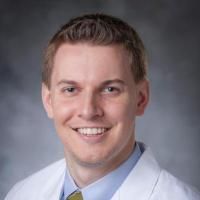Utilization of Healthcare in the Typhoid Fever Surveillance in Africa Program.
Date
2016-03-15
Journal Title
Journal ISSN
Volume Title
Repository Usage Stats
views
downloads
Citation Stats
Abstract
BACKGROUND: Assessing healthcare utilization is important to identify weaknesses of healthcare systems, to outline action points for preventive measures and interventions, and to more accurately estimate the disease burden in a population. METHODS: A healthcare utilization survey was developed for the Typhoid Fever Surveillance in Africa Program (TSAP) to adjust incidences of salmonellosis determined through passive, healthcare facility-based surveillance. This cross-sectional survey was conducted at 11 sites in 9 sub-Saharan African countries. Demographic data and healthcare-seeking behavior were assessed at selected households. Overall and age-stratified percentages of each study population that sought healthcare at a TSAP healthcare facility and elsewhere were determined. RESULTS: Overall, 88% (1007/1145) and 81% (1811/2238) of the population in Polesgo and Nioko 2, Burkina Faso, respectively, and 63% (1636/2590) in Butajira, Ethiopia, sought healthcare for fever at any TSAP healthcare facility. A far smaller proportion-namely, 20%-45% of the population in Bissau, Guinea-Bissau (1743/3885), Pikine, Senegal (1473/4659), Wad-Medani, Sudan (861/3169), and Pietermaritzburg, South Africa (667/2819); 18% (483/2622) and 9% (197/2293) in Imerintsiatosika and Isotry, Madagascar, respectively; and 4% (127/3089) in Moshi, Tanzania-sought healthcare at a TSAP healthcare facility. Patients with fever preferred to visit pharmacies in Imerintsiatosika and Isotry, and favored self-management of fever in Moshi. Age-dependent differences in healthcare utilization were also observed within and across sites. CONCLUSIONS: Healthcare utilization for fever varied greatly across sites, and revealed that not all studied populations were under optimal surveillance. This demonstrates the importance of assessing healthcare utilization. Survey data were pivotal for the adjustment of the program's estimates of salmonellosis and other conditions associated with fever.
Type
Department
Description
Provenance
Subjects
Citation
Permalink
Published Version (Please cite this version)
Publication Info
Panzner, Ursula, Gi Deok Pak, Peter Aaby, Yaw Adu-Sarkodie, Mohammad Ali, Abraham Aseffa, Stephen Baker, Morten Bjerregaard-Andersen, et al. (2016). Utilization of Healthcare in the Typhoid Fever Surveillance in Africa Program. Clin Infect Dis, 62 Suppl 1. pp. S56–S68. 10.1093/cid/civ891 Retrieved from https://hdl.handle.net/10161/13758.
This is constructed from limited available data and may be imprecise. To cite this article, please review & use the official citation provided by the journal.
Collections
Scholars@Duke

John Andrew Crump
I am an Adjunct Professor of Medicine, Pathology, and Global Health. My work with Duke University is primarily based in northern Tanzania where I am former Site Leader and current Principal Investigator on projects linked to Duke University’s collaborative research program at Kilimanjaro Christian Medical Centre. I oversee the design and implementation of research studies on infectious diseases, particularly febrile illness, invasive bacterial disease, zoonotic infections, and infectious diseases diagnostics. In addition, I am Professor of Medicine, Pathology, and Global Health at the University of Otago and a medical epidemiologist with the US Centers for Disease Control and Prevention (CDC). My CDC work focuses on non-malaria febrile illness.

Julian T Hertz
Julian Hertz, MD, MSc, is an Associate Professor of Emergency Medicine & Global Health. He graduated summa cum laude from Princeton University and attended medical school at Duke University, where he received the Dean's Merit Scholarship and the Thomas Jefferson Award for leadership. He completed his residency training in emergency medicine at Vanderbilt University Medical Center and his fellowship in Global Health at Duke.
Dr. Hertz's primary interests include global health, implementation science, and undergraduate and graduate medical education. Dr. Hertz's research focuses on using implementation science methods to improve cardiovascular care both locally and globally. His current projects involve developing interventions to improve acute myocardial infarction care in Tanzania, to improve management of hypertension among Tanzanians with HIV, and to improve post-hospital care among patients with multimorbidity in East Africa.
Dr. Hertz has received numerous awards for clinical, educational, and research excellence, including the Duke Emergency Medicine Faculty Teacher of the Year Award, the Duke Emergency Medicine Faculty Clinician of the Year Award, and the Duke Emergency Medicine Faculty Researcher of the Year Award. He has also received the Golden Apple Teaching Award from the Duke medical student body, the Duke Master Clinician/Teacher Award, and the Global Academic Achievement Award from the Society of Academic Emergency Medicine.
Unless otherwise indicated, scholarly articles published by Duke faculty members are made available here with a CC-BY-NC (Creative Commons Attribution Non-Commercial) license, as enabled by the Duke Open Access Policy. If you wish to use the materials in ways not already permitted under CC-BY-NC, please consult the copyright owner. Other materials are made available here through the author’s grant of a non-exclusive license to make their work openly accessible.
